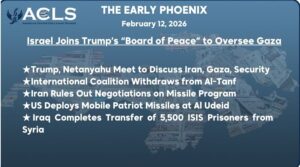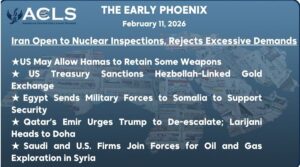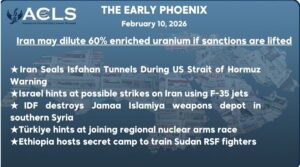Dr. Saman Shali, Political Analyst
Since September 11, 2001, and the attacks on the Twin Trade Towers in New York City, U.S. foreign policy has shifted from the traditional post-World War II Cold War to an open war on terrorism. It started with the invasion of Afghanistan and Iraq as bases of terrorism. After spending billions of dollars in taxpayer money and losing many American lives in Afghanistan, they withdrew, leaving the country at the mercy of the Taliban back to square one. In Iraq, the story is different for the following reasons:
- Removal of Saddam Hussein’s Regime: The overthrow of Saddam Hussein’s authoritarian regime was one of the primary objectives of the invasion. Hussein’s regime was accused of committing human rights abuses, oppressing dissent, and threatening regional stability. His removal from power ended his oppressive rule.
- Destruction of Potential Weapons of Mass Destruction: No significant weapons of mass destruction (WMDs) were found after the invasion of Iraq, but supporters argued that the fall of Saddam Hussein’s regime had halted all potential future weapons of mass destruction programs.
- Democracy Promotion: Promoters of the war believed that establishing a democratic government in Iraq would serve as a model for political transformation in the Middle East, potentially leading to a more stable and democratic region.
- Regional Influence and Strategic Presence: The invasion enabled the United States to assert its influence and maintain a strategic presence in the Middle East, enhancing its ability to respond to regional challenges and promote its interests.
- Access to Oil Resources: According to some war critics, gaining more control over Iraq’s oil resources was one of the war’s primary goals. While supporters dispute this assertion, some saw securing access to oil resources as a potential advantage of the invasion.
- Humanitarian Assistance and Reconstruction: Following the invasion, the U.S. and its allies initiated efforts to provide humanitarian aid and support reconstruction projects to help stabilize and rebuild Iraq after the conflict.
It should be noted that many of these alleged advantages have significant drawbacks or have not yet been fully realized. After the invasion, political unrest, sectarian conflict, and insurrection were common, impeding attempts to bring about the desired result. The absence of WMDs undermined the initial justification for the war, which led to criticism of the decision-making process in the United States and internationally.
The invasion also had adverse effects, such as the emergence of ISIS, the continuation of sectarian conflict, and the expulsion of millions of Iraqis. Academics, decision-makers, and the general public are still divided on the invasion’s justifications and successes.
For many years, the United States has been concerned about Iraq for various reasons, including geopolitics and national security. Here are some crucial reasons why Iraq has been critical to the United States, although the dynamics of international relations are subject to change
- Strategic location: Iraq is strategically located in a geopolitically important region of the Middle East. It borders multiple countries, including Iran, Turkiye, Syria, Saudi Arabia, and Jordan. The companys location near significant oil reserves in the Arabian Gulf makes it a major player in the global energy market.
- Oil Reserves: Iraq possesses significant oil reserves, making it one of the world’s largest oil producers. As the U.S. relies on oil imports to meet its energy demands, stability and access to oil resources in the Middle East are vital to its economic interests.
- Regional Stability: Stability in Iraq is crucial for maintaining broader regional stability in the Middle East. Instability in Iraq can have spillover effects, potentially impacting neighboring countries and posing security threats to U.S. allies.
- Counterterrorism: After the US-led invasion of Iraq in 2003, the country became a central battleground in the fight against terrorism. Groups like Al-Qaeda in Iraq and later the Islamic State (ISIS) gained footholds in the country, posing a significant threat to regional and international security. The U.S. has been involved in countering terrorist organizations operating in Iraq.
- Influence in the Middle East: The U.S. sees Iraq as an essential partner in shaping regional politics and influence in the Middle East. A stable and cooperative Iraq can support U.S. policy objectives, such as containing Iran’s regional ambitions, promoting peace between Israel and its Arab neighbors, and countering extremist ideologies.
- Diplomatic and Economic Relations: The U.S. maintains diplomatic and economic ties with Iraq, fostering cooperation in trade, investment, and development. These ties allow the U.S. to advance its regional interests and influence.
- Military Presence: The U.S. has had a military presence in Iraq for years after the 2003 invasion until today. Iraq served as a base for U.S. military operations in the Middle East, allowing the U.S. to project its military power and respond to regional security challenges. However, the withdrawal of American forces in 2011 became less potent in Iraq than it used to be and more at risk of being attacked by Iranian proxies.
It is important to note that the U.S. approach to Iraq has evolved, and its strategic interests in the region may continue to evolve based on geopolitical developments and changes in U.S. foreign policy priorities.
However, post-occupation Iraq and the United States shared several common strategies and interests as follows:
- Counterterrorism: The U.S. and Iraq have a shared interest in countering terrorist organizations, particularly the Islamic State (ISIS). The U.S. has provided military assistance, training, and intelligence support to Iraqi forces to help them combat the ISIS threat.
- Security Cooperation: The U.S. and Iraq have maintained a security partnership to promote regional stability. This cooperation includes arms sales, joint military exercises, and ongoing military advisory support.
- Energy Security: Iraq is a major oil-producing country, and the U.S. is interested in ensuring a stable oil flow from the region to the global market. Energy security is a mutual concern for both countries.
- Political Stability: Both countries are interested in promoting political stability in Iraq. The U.S. has supported Iraq’s efforts to build democratic institutions and strengthen governance to prevent the rise of extremism and maintain regional stability.
- Economic Cooperation: Economic ties between the U.S. and Iraq have been strong, with trade and investment essential factors in their relationship.
- Humanitarian Assistance: The U.S. has provided humanitarian aid to Iraq, particularly during times of crisis, such as in the aftermath of the war against ISIS.
- Infrastructure Development: Both countries have shown interest in rebuilding and developing Iraq’s infrastructure and economy after years of conflict and instability.
In conclusion, it is essential to remember that the dynamics of international relations may change over time due to the region’s new political, military, and economic developments. Relations between the United States and Iraq constantly evolve as the area experiences many daily changes. Both sides must work hard to achieve the common goal of defending Iraqi sovereignty against any regional countries’ interference in Iraq.



